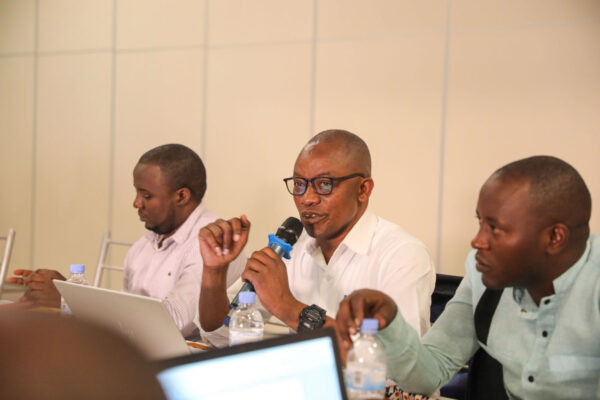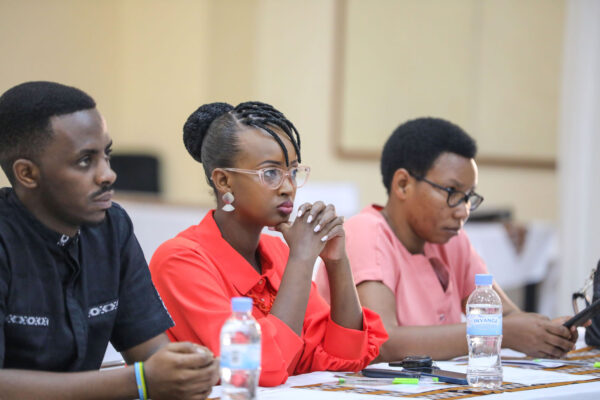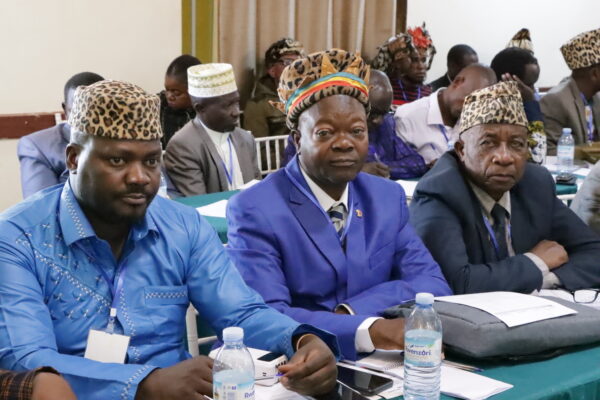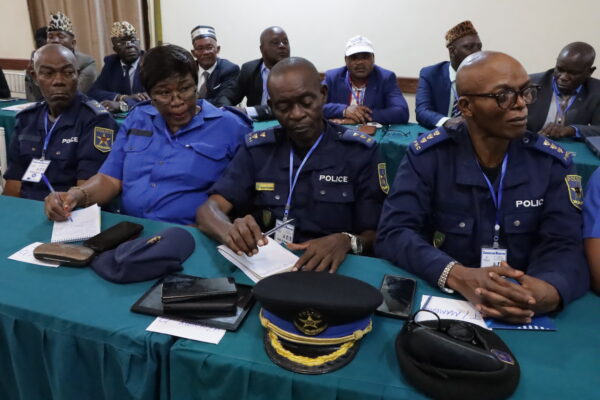Forging the path to reconciliation in Burundi through intergenerational dialogues
Interpeace is leveraging intergenerational dialogue to promote healing, understanding, and community-building in Burundi. The ‘Dukire Twubake’ (To Heal, To Build) programme is designed to address the impact of past trauma, gender and age on individuals and communities, with a particular focus on peacebuilding, development and decision-making. It exemplifies the effort to encourage open communication and foster mutual respect within communities.
This approach creates an environment where participants of all ages can openly share their experiences, thereby nurturing empathy, trust, and appreciation for diverse perspectives. By creating spaces for honest storytelling and attentive listening, the programme empowers Burundians to process their trauma, explore new avenues for progress, and gain deep insights into their own lives as well as the lives of others.
From 2023 to 2024, a series of intergenerational dialogues took place across Burundi, facilitated by the Centre d'alerte et de prévention des conflits (CENAP) and Interpeace under the Dukire Twubake programme, which is funded by the Government of Norway. These dialogues brought together individuals from different generations, providing adults who had experienced the country’s conflicts with an opportunity to share stories of "doing the right thing" in the face of adversity.
Before engaging in these dialogues, participants underwent a preparatory phase involving socio-therapy sessions. This process allowed them to address negative emotions, find healing, and challenge harmful stereotypes about other ethnic groups, paving the way for open and constructive intergenerational dialogues.
The first dialogue in 2023, held in Kabezi commune, saw participants sharing acts of humanity during times of violence in the country. Their testimonies, often involving acts of saving lives regardless of ethnicity, were met with warm applause from the youth in attendance. “The young participants appreciate the behavior adopted by these 'heroes' during moments of violent conflict, that of not giving in to violence, but of flying to the aid of other," observed one attendant.
Jean de Dieu, a member of the Dukire Twubake youth group, captured the impact of these dialogues, stating: "We have just understood that during these dark periods, Tutsis saved Hutus and vice versa. This helps build and strengthen confidence in the younger generation."
A second dialogue in 2023, held in Nyanza-lac commune, further amplified these messages, with participants sharing moving accounts of forgiveness and reconciliation across ethnic lines. One woman, who is now a local leader, recounted her harrowing experience of being wrongfully accused, imprisoned, and tortured. However, she later embraced her former accuser in a powerful act of forgiveness, drawing cheers from her neighbours.
As the dialogues continued into 2024, in Ruhororo communue, the focus shifted to the "heroes" or "pillars of peace" whose stories served as lessons for Burundi's youth. Emmanuel Barusasiyeko, a Hutu man, recounted how he sheltered three Tutsi children during the 1993 inter-ethnic massacres, risking his own life to guide them to safety. His actions were rewarded years later when one of the children, now living in Canada, sought to facilitate the migration of Barusasiyeko's son as a gesture of gratitude. Before concluding his narration, Barusasiyeko turned to the young people to tell them 'Ukora iciza ukagisanga imbere' (If you do good, you will reap the fruits in the future)."
These intergenerational dialogues not only fostered reconciliation but also provided a therapeutic outlet for participants. Christian, a Dukire Twubake beneficiary, explained: "They allow us to unburden ourselves because it is by talking about this difficult past and sometimes by trivialising it that we can finally live our present easily."
“Intergenerational dialogues are the final, hopeful step in our therapy sessions. We begin by addressing the negatives of the past in healing spaces. Then, we encourage members to share positive stories in these dialogues, fostering understanding and hope”, said the Programme Manager at CENAP, Serge Ntakirutimana.
“These dialogues, focusing on positive experiences, serve as a powerful tool to combat hatred and stereotypes, particularly in societies affected by conflict. Stories from both the elderly and the youth remind us that there is no ‘good’ or ‘bad’ ethnicity in places with a troubled history like Burundi. Every ethnicity has individuals who have demonstrated remarkable humanity and those who have been engulfed in violence. These shared stories stand as a testament to our shared humanity and a beacon of hope for a future that is more understanding and compassionate,” he added.
The Dukire Twubake programme recognises the transformative power of storytelling and listening in promoting healing and understanding. It encourages open communication, self-reflection, and the exploration of alternative paths forward, fostering a sense of community and collaboration. Using psychosocial recovery methods and capacity and confidence-building tools, the programme aims to empower women, youth, and communities affected by trauma. It helps them advocate for their needs, mobilise others around those needs, and lead initiatives that build social and political cohesion and improve livelihoods. A testament to this approach is the establishment of a savings and credit association in Kabezi commune by a group of twelve women in August 2023. This initiative not only addresses their need for affordable credit but also provides opportunities for mutual support and healing. Comprising women from different ethnic groups and religions, the association strengthens cohesion and reconciliation. This association was formed after the women benefited from the psychosocial support and capacity-building in entrepreneurship provided by the Dukire Twubake programme, thereby creating a continuous narrative of empowerment and healing.
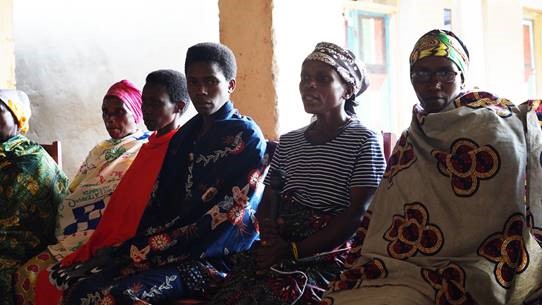
A participant from Ruhororo commune expressed astonishment, stating: "It's very impressive! I didn't know that the commune of Ruhororo has so many people who risked their lives to save neighbours in 1993. This is a very good example for us who have not lived through these events. Personally, I am determined to campaign for the good even during times of conflict."
As Burundi looks toward the future, the seeds of reconciliation sown through these intergenerational dialogues hold the promise of a more united and resilient nation. By honouring the stories of those who chose compassion over violence, the Dukire Twubake programme has inspired a new generation to embrace the values of humanity, forgiveness, and mutual understanding. These values will shape a more peaceful and prosperous future for Burundi.


